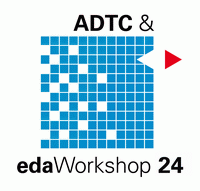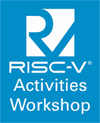Challenges in Testing Electronic Control Units for the Automobile
Technical Session II
Challenges in Testing Electronic Control Units for the Automobile
Hans-Christian Reuss, FKFS
Abstract
Automatic test execution has become the state-of-the-art way of testing ECUs over the last years. It eliminates error-prone manual testing, allows regression testing, is cheaper in the long run and faster than manual testing. Different manufacturers offer a wide choice of soft- and hardware to aid the development engineer in his automatic testing activities.
A totally different question is the design of the test-cases themselves. Today there's no way to automatically generate testcases for automotive ECUs. The main reason is that automatic generation of test-cases would require some sort of formal description of the object that needs testing. There's no such formal description of ECUs in the automotive domain or even for any sort of embedded system. One goal of this contribution is to introduce a process that includes a formal description of automotive ECUs, a connected strategy to automatically obtain the resulting test-cases and a way to access those test-cases through different test systems. In addition an overview about the challenges of the development of automotive electronics in general will be given and the question how to handle the increasing complexity of automotive electronic systems will be discussed.
Biography
 Hans-Christian Reuss Chair of Automotive Mechatronics Research Institute of Automotive Engineering and Vehicle Engines Stuttgart (FKFS)
Hans-Christian Reuss Chair of Automotive Mechatronics Research Institute of Automotive Engineering and Vehicle Engines Stuttgart (FKFS)
Hans-Christian Reuss received the Dipl.-Ing. and the Ph.D. degrees in electrical engineering from the Technical University of Berlin, Germany, in 1984 and 1989, respectively. In 1989 Dr. Reuss joined the PHILIPS Semiconductors Application Laboratory in Hamburg. In 1993 Dr. Reuss became professor at Dresden University of Technology. In 2001 he was involved in the establishment of the DaimlerChrysler Competence Center of Electrical and Electronic Architecture and in 2002 he established the Institute of Automotive Mechatronics GmbH Dresden. In 2004 Prof. Reuss took over the chair of Automotive Mechatronics at the Institute of Internal Combustion Engines and Automotive Engineering (IVK) and became a member of the management board of the Research Institute of Automotive Engineering and Vehicle Engines Stuttgart (FKFS).










